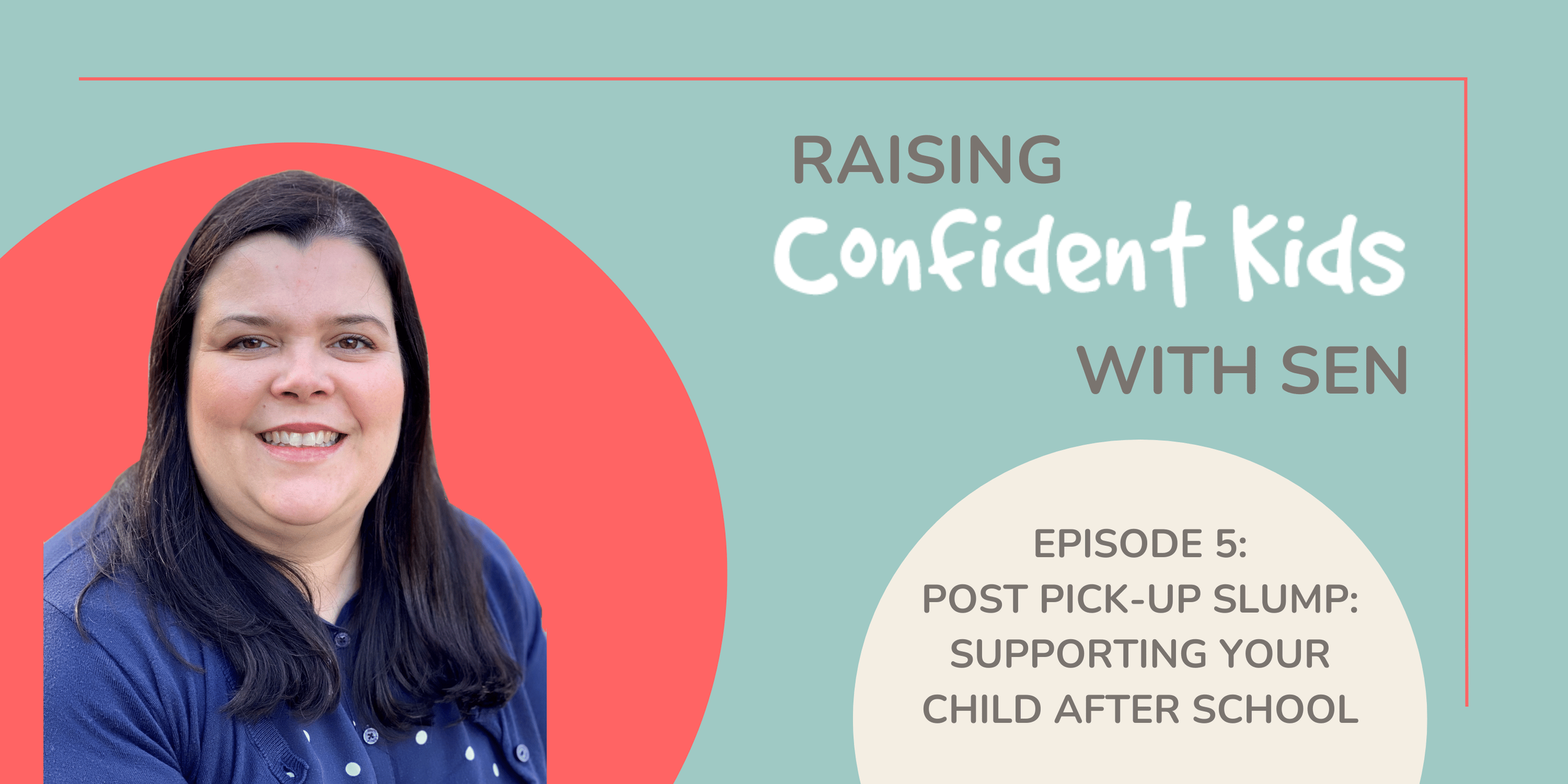Navigating the post-school pick-up slump for children with SEN
The after-school emotional rollercoaster
Every parent of a child with SEN knows the scene: you pick them up from school and are met with an avalanche of emotions and behaviours you don't always understand. In this episode of Raising Confident Kids with SEN, I tackle the post-pick-up slump, offering strategies to support your child through this daily transition. I discuss tools, timing, and tips for helping our kids decompress and reconnect after a demanding school day.
Understanding the "Coke bottle effect"
The "Coke Bottle Effect" is a familiar phenomenon for many parents and educators. It's an analogy used to describe how children with SEN often bottle up their feelings and experiences throughout the school day, only to release the built-up pressure once they feel safe, which is usually at home. Emotional literacy and regulation strategies are vital for preventing the build-up of these emotions and ensuring a smoother transition from school to home.
Emotional literacy and visual aids
In fostering emotional literacy, visual aids like the My Mood Stars board can be game-changers. My youngest daughter used the board to express her nervousness, allowing for shared experiences and support from her sister. Encouraging regular conversations about feelings, particularly with the aid of physical prompts, enables children to understand and articulate their emotions. This can dilute the intensity of the post-school emotional release.
Confidently Calm Programme - a parental lifeline
The Confidently Calm programme, which provides support for parents of children struggling with big feelings, demonstrates the importance of self-regulation for the whole family. Corrine, who has done the programme shares how implementing strategies at home as well as in her workplace serves as encouragement for other parents navigating similar challenges. Moreover, the successful adoption of self-regulation as a focus in an entire school emphasises the program's effectiveness and the power of a community approach to SEN.
Decompression strategies
It's important to recognise that each child decompresses differently, and timing is key. Children require a break to reset their brain after school – this might mean some alone time, physical activity, or a simple snack. Ensuring that your child has the space and resources they need to regulate their emotions and reconnect is crucial for their overall well-being.
The role of diet and schedules in emotional regulation
Dietary needs can't be overlooked, as a child who hasn't eaten well during the school day may come home "hangry" and less able to regulate their emotions. Quick refueling with snacks and a consideration for an earlier dinner might be in order. On a broader scale, reevaluating the weekly schedule and potential over-scheduling is necessary to avoid emotional overwhelm and ensure your child isn't exhausted from the day's activities. Children all have varying needs and it’s important to plan activities accordingly.
Childcare and after-school considerations
For working parents, considering the quality of after-school childcare is vital. Does it provide the right environment for your child to decompress and regulate? Understanding your child's needs in these settings can inform decisions on the best care and support for your child post-school.
Empowering your child through the slump
The post-pick-up slump can be challenging, but it's navigable with the right tools and understanding. As this episode reminds us, being tuned into our child's emotional and physical needs and creating tailored strategies to meet them can transform the post-school transition into an opportunity for reconnection and growth. Take heart, and remember, you're not alone on this journey to raising confident kids with SEN.

